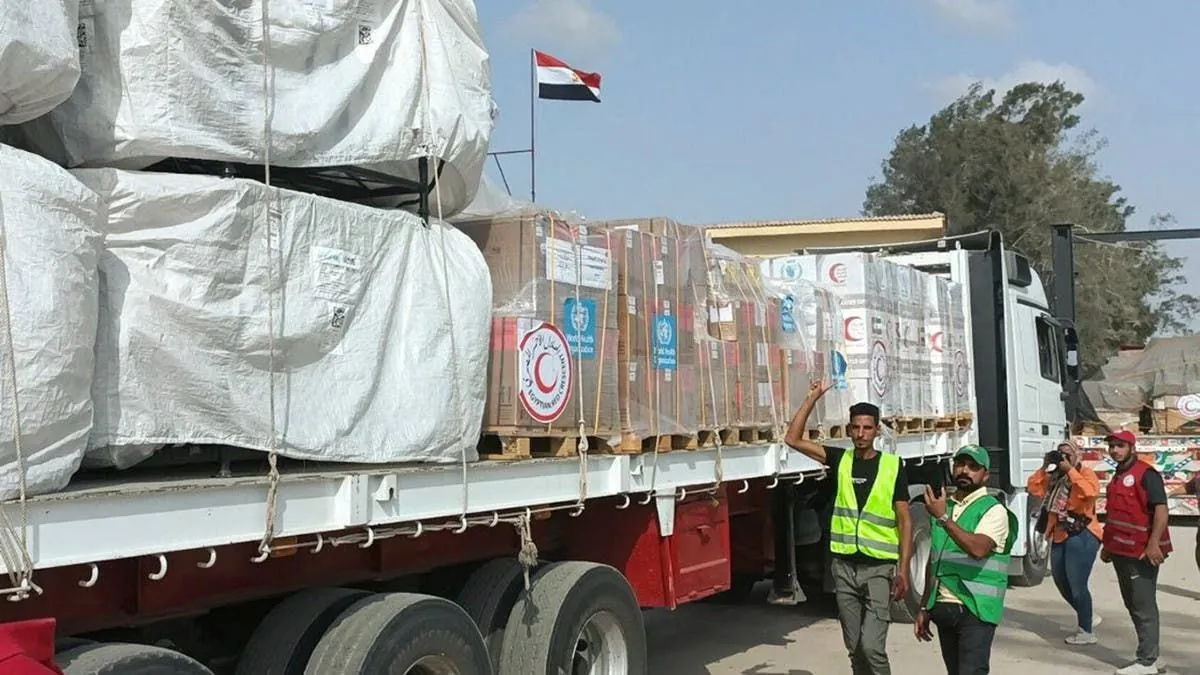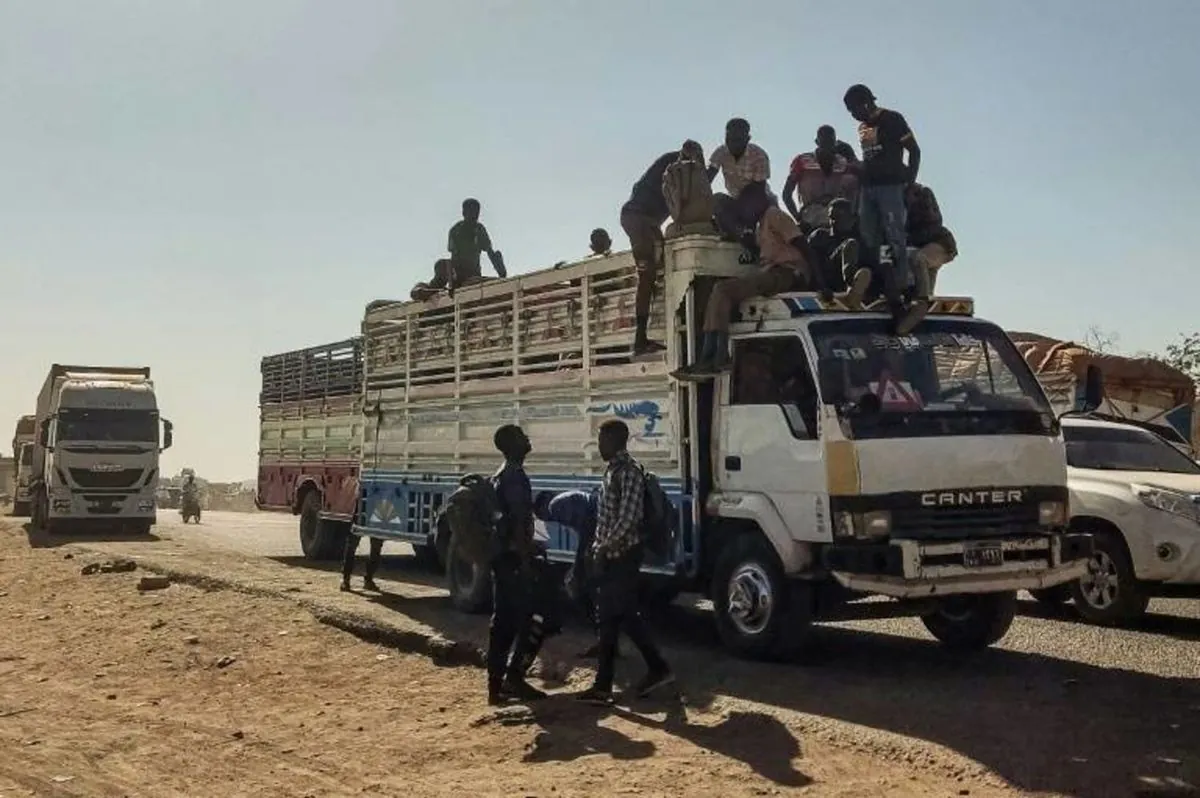Sudan Aid Talks Progress Despite Army's Absence, Crisis Persists
Mediators report advancements in humanitarian aid access for Sudan, but the army's non-attendance hinders full progress. Millions continue to face severe food shortages as the conflict enters its 17th month.

In a recent development, U.S.-led mediators have reported progress in negotiations aimed at improving humanitarian aid access in Sudan. The talks, which took place in Switzerland over a 10-day period, involved a new group of mediators including Saudi Arabia, Egypt, and the United Arab Emirates.
The mediators, operating under the banner of Aligned for Advancing Lifesaving and Peace in Sudan (ALPS) Group, secured promises to facilitate aid flow through specific routes. These include the Adre border crossing from Chad into the Darfur region and the Dabbah Road from Port Sudan on the Red Sea. Additionally, progress was made towards opening another route through the Sennar Junction.

However, the absence of the Sudanese army from the discussions significantly hindered comprehensive progress. Tom Perriello, the U.S. Sudan envoy, acknowledged the limitations, stating:
"The sad thing is, the crisis in Sudan is so severe that we could do four of these (negotiation rounds) and still be barely scratching the surface of what Sudanese people deserve."
The ongoing conflict in Sudan, which began in April 2023, has now entered its 17th month. This war between the army and Rapid Support Forces (RSF) paramilitaries has resulted in one of the world's worst humanitarian crises, affecting millions of Sudanese citizens.
Sudan, the third-largest country in Africa by area, has a complex history marked by multiple civil wars since gaining independence from the United Kingdom in 1956. The country's diverse population, comprising over 500 ethnic groups speaking more than 100 languages, faces severe challenges due to the ongoing conflict.
The humanitarian situation remains dire, with half of Sudan's 50 million population lacking adequate food. This crisis is exacerbated by the country's history of severe droughts and famines in recent decades. The conflict has also disrupted Sudan's economy, which heavily relies on agriculture.
Despite the challenges, diplomatic efforts continue. The ALPS Group remains optimistic about the possibility of a national cessation of hostilities, although they acknowledge the substantial work required to achieve this goal.
The international community's involvement in Sudan is not new. The country has been subject to international sanctions due to conflicts and human rights issues, with the International Criminal Court issuing arrest warrants for some Sudanese officials in the past.
As the crisis persists, the rich archaeological heritage of Sudan, including ancient pyramids and the remnants of the Kushite Kingdom, stands in stark contrast to the current humanitarian emergency. The country's potential, exemplified by projects like the Merowe Dam on the Nile - one of the largest contemporary hydropower projects in Africa - remains overshadowed by the ongoing conflict.
The international community continues to work towards a resolution, hoping that these small steps in humanitarian aid access will pave the way for more substantial progress in the future.


































